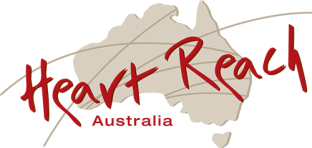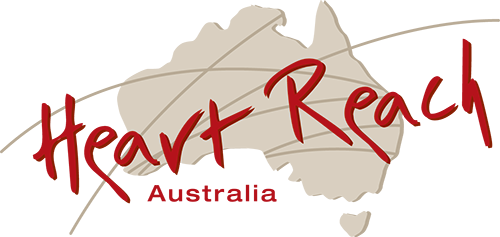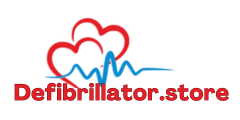OUR GOALS
 Developing the Medical Clinic at Tan Thach (Ben Tre, Mekong Deltaregion) in 2010, saw many new initiatives aimed directly at the local poor families, being initiated.
Developing the Medical Clinic at Tan Thach (Ben Tre, Mekong Deltaregion) in 2010, saw many new initiatives aimed directly at the local poor families, being initiated.
These include:
- Vaccination for children and infants, targeting malarial and common health areas. This is currently being assessed for the danger months.
- Diabetes checks for remote and elderly, as well as local families
- Health ID Records (free medical and pharmaceuticals) for poor families both at Clinic or mobile medical ambulance boat (now not operating). (Funding is currently being sought for these programs to assist very poor families.)
- Identification of possible ‘micro business situations’ where poor families can be assisted in developing, with initial grants of materials or tools, small local businesses that can develop to assist them to gain their own income and self esteem over a period of time. Such micro-businesses will be monitored and assistance given as required. In time, their dependence on the health card program will no longer exist.
- Eye testing both Clinic and mobile, with free glasses for poor families. Using both HCMC based optometrists and ophthalmologists, as well as HRA visiting medical personnel, this critical need is now being addressed, thanks to the eye doctors who have been part of our scholarship program in Australia, and make time to use their skills as a way of giving back. Currently it is estimated as many as 15% of children in the region suffer sight deficiencies, with many of these being major early onset eye diseases that are treatable.
- Water safety and awareness programs, including learn to swim, CPR and danger recognition and prevention aspects.
 Despite the many waterways in the Mekong Delta, a very high percentage of children have never learnt to swim. Drownings are too common, not only in the wet season. Again, these are preventable. The generous support of major facilities such as the Sofitel Saigon Plaza Hotel and some other venues, is a major contribution to safety for many children.
Despite the many waterways in the Mekong Delta, a very high percentage of children have never learnt to swim. Drownings are too common, not only in the wet season. Again, these are preventable. The generous support of major facilities such as the Sofitel Saigon Plaza Hotel and some other venues, is a major contribution to safety for many children. - Road safety programs, including awareness issues, helmets, road use and rules, etc. are also part of the schools initiatives and operates in the provincial areas where the problems exist for so may poor. Despite the governments current crack down on the use of helmets, it is regional in enforcement, and where HCMC may be strict, rural and remote regions are not. Traffic being a problem in all areas, this is therefore a crucial need that must be addressed. Children are generally keen to learn, and accept the change necessary. Currently, a major initiative has been the First Aid Training in High Schools, and a First Aid Kit that will fit under a motorbike seat. Both these programs are currently top priority. We are seeking support for costs and materials to spread this out over the Ben Tre Province, then further into Vietnam as we gain funds and regional provincial support.
- Dental care and treatment (Central Clinic and water transportation as required) About 40% of children checked have immediate dental needs. This requires both health / dental education, as well as primary treatment. HRA is developing programs in both these areas, in cooperation with local and visiting dentists. Currently, portable dental equipment is a specific need.
- Health education & hygiene education, integrated with children’s sponsorship programs, and including women’s and children’s health issues. For many people, survival has taken priority over ‘doing the right thing’. Many know about hygiene, but have no clean water, or facilities. Others lack the knowledge or full understanding of the implications of neglecting basic sanitation and hygiene.
- Health education for poor families, including nutrition and food guide, garden development and assistance, (eg, as above, micro business with chickens, fish, vitamin rich vegetables etc) and ongoing volunteer input.
- Water safety and awareness programs, including learn to swim, CPR and danger recognition and prevention aspects. Despite the many waterways in the Mekong Delta, a very high percentage of children have never learnt to swim. Drownings are too common, not only in the wet season. Again, these are preventable.
- Road safety programs, including awareness issues, helmets, road use and rules, etc. Despite the governments current crack down on the use of helmets, it is regional in enforcement, and where HCMC may be strict, rural and remote regions are not. Traffic being a problem in all areas, this is therefore a crucial need that must be addressed. Children are generally keen to learn, and accept the change necessary.
- Dental care and treatment (Central Clinic and water transportation as required) About 40% of children checked have immediate dental needs. This requires both health / dental education, as well as primary treatment. HRA is developing programs in both these areas, in cooperation with local and visiting dentists. Currently, portable dental equipment is a specific need. Some equipment is available but limited.
- Health education & hygiene education, integrated with children’s sponsorship programs, and including women’s and children’s health issues. For many people, survival has taken priority over ‘doing the right thing’. Many know about hygiene, but have no clean water, or facilities. Others lack the knowledge or full understanding of the implications of neglecting basic sanitation and hygiene.
- Extension of the Children’s Sponsorship program, bringing awareness of the needs and effectiveness of this program. (Many street kids and poor children still in desperate need of sponsorship for education and life needs.) Refer the “sponsorship page” for specific children currently in desperate need of your support. The online ‘sign up’ is simple and fast!
- HRA has developed a strong regional network with local hospital facilities, and has access to road ambulances to assist in emergency evacuation and first response situations. The local village (and HCMC if required) medical facility and transport network is in place already, in preparation for any patient needs. Regular meetings with Provincial Health Directors has ensured both trust and agreement is maintained between HRA personnel and regions. We are constantly involved in updating CPR and emergency response skills with medical personnel.
DIRECT IMPACT OF PROGRAM ON REGION AND PEOPLE
The immediate impact of the programs of Heart reach Australia have already been seen to some degree, in context of the Medical Clinic providing facilities for the poor families within the region since Nov. ‘10. Similarly, though the sponsorship program, hundreds of kids and family members are benefiting through education, practical support, and a great opportunity to have a quality of life which otherwise would have never been possible. The smiles and thanks is always a special event as we catch up with them. As a general rule, 98% of children we assist are in school full time, and 2% part time due to life on the streets. (The program has other support means for these few children in street conditions.) When kids drop out or are ‘lost’ to our system after all attempts to follow up, we have others waiting for help. It is an ongoing need.
 Our First Aid Training and First Aid Kit for under bike seats, will be an ongoing activity that we hope can gain financial and practical support both in Australia and Vietnam. The massive number of road deaths annually can be curbed with knowledge and equipment. It will take time, but has to happen.
Our First Aid Training and First Aid Kit for under bike seats, will be an ongoing activity that we hope can gain financial and practical support both in Australia and Vietnam. The massive number of road deaths annually can be curbed with knowledge and equipment. It will take time, but has to happen.
The HRA Mandate in Vietnam is still:
Eye Care and treatment is also ongoing. Our links with eye hospitals and doctors is strong, and numerous operations have been done free for poor people. In return, we give training in a number of areas to staff.
Thank you for your care. Please encourage others to get involved in MAKING IT HAPPEN!






